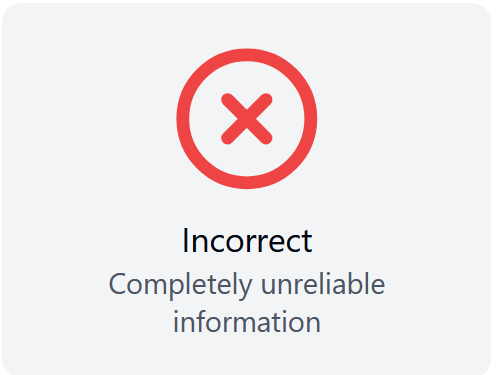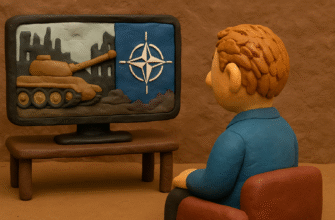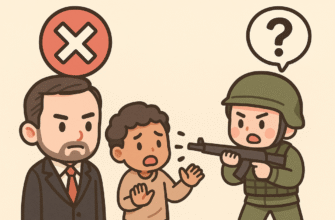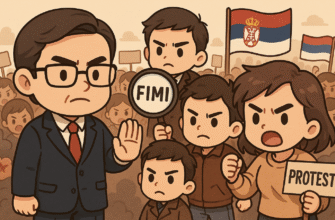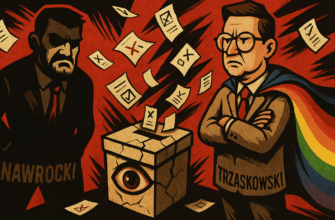On March 17, 2025, the YouTube channel NEWS.BY published an interview with Konstantin Pridybailo, a special correspondent for RT, titled: “They Want to Reprogram Us”. Key quotes from this alarming, symptomatic interview, despite its small number of views:
Because an ordinary physical bullet, 9 grams, it kills a person, and he dies. But an information bullet doesn’t kill, it penetrates inside and starts working from within the person. Ukraine, for example, we saw how events unfolded. Destroying. Information weapons are akin to biological weapons. Once it infects one person, it infects everything around. He begins to transmit those thoughts. To his family, to his friends. If, God forbid, this person has an audience, a journalist, blogger, teacher, he starts telling this to a wider audience. Remember, yes, various NGOs, foundations, like NET, USAID, and others, they were essentially such information-biological weapons. They instilled in people certain meanings that they needed, well, I don’t know, that the current symbols of Belarus are not the symbols of Belarus, or that Russia oppressed some peoples there. And that Russia generally needs to be decolonized. Well, and other such nonsense. This is, of course, much more complex. This will never end. When our great homeland collapsed, they gave us this pill and said, we are now friends with you. Nothing of the kind. They had one task, which they spoke about out loud. On the territory of Russia, and in general, this is essentially a continuation of the German Ost plan, there should be no people. There should be an oil pump, a gas pipeline, there, I don’t know, you can also raise animals and wheat, yes, and all this will go to the west, to the current NATO Europe.
Therefore, no, at this moment, at this period of time, we should really have, well, not that military censorship, but certain rules of life. Russia has come to this, and even then not completely. Belarus has also come to this, and also not quite, in my opinion, in the right form. Well, even, let’s say, in Belarus there is no internet regulator. There are different divisions, these are security forces and not only, which manage the internet. These are extremists there.
And do you think the internet should be controlled?
Of course. There is a zone of the Belarusian internet, it is very deeply, let’s say, connected with the Runet. We have a common Russian language, we are connected, that is, our interests on the internet should also be within the framework of common security.
Our verdict based on conducted analyses:
Verdict: Incorrect
Reasons:
- The thesis or statement is completely false: information from multiple sources or opinions of several experts in the specific field contradict it.
- The alleged event is fictional and never took place.
- The event occurred in substantial aspects differently than claimed.
- The cause-and-effect relationships and connections clearly do not exist as claimed.
Full video:
The interview with Konstantin Pridybailo, a special correspondent for Russia Today (RT), published against the backdrop of current geopolitical tensions, is filled with images of “hybrid warfare,” threats to cultural code, and calls for digital sovereignty. We analyzed the key statements of the speaker, dividing them into three categories: facts, manipulations, and false statements.
1. “Information war began 100 years ago and will not end”
Verdict: manipulation
The concept of “information warfare” in the modern sense began to form in the 20th century, especially during the Cold War. The claim about a continuous 100-year war is a rhetorical exaggeration without sources.
2. “Plan Ost envisaged the extermination of the population and is still used by the West”
Verdict: lie / manipulation
Plan Ost did indeed provide for the depopulation of Eastern European territories. However, drawing parallels between Nazi occupation policy and modern Western policy is an unacceptable distortion of historical context.
3. “Hollywood forms negative images of Russians, Ukrainians, Belarusians”
Verdict: partially true
Stereotypes in mass culture do exist, and the number of films in which Belarus is associated with a negative image has become enormous in recent years. It must be clearly understood that this image deteriorates as a result of the long-term actions of the current regime.
4. “NGOs and foundations like USAID are information-biological weapons”
Verdict: manipulation
USAID and NED are international organizations that fund projects in healthcare, democracy, and civil society development. Calling them “weapons” is a purely rhetorical device without foundation.
5. “Superman is a Pentagon product created for propaganda”
Verdict: lie
Superman was invented by two private authors — Jerry Siegel and Joe Shuster — in 1933. His first appearance was in 1938 in Action Comics magazine. The character had no connection to government structures. Although in the post-war period comics were indeed used for propaganda purposes, the claim that Superman was created by the Pentagon or CIA is inaccurate.

Source: Kommersant. 50 facts about Superman, 2018
6. “Belarusian flag was only used under the Nazis”
Verdict: lie
The white-red-white flag was the state symbol of the BNR (1918) and the Republic of Belarus (1991-1995). Yes, it was also used during the German occupation, but the claim that it is “purely Nazi” is historically incorrect and manipulative.
7. “AI is trained on enemy meanings — we need our own, trained on the Soviet encyclopedia”
Verdict: partially true / disputed claim
Many neural networks are indeed trained on English-language sources. However, the proposal to train AI on Soviet encyclopedias and library collections is more of an ideological position than a technological recommendation.
8. “We need control over the internet, censorship, and our own content regulator”
Verdict: opinion / not subject to fact-checking, but raises concerns
Calls for censorship contradict international standards of freedom of expression. It is important to remember that any restrictions must be justified, proportionate, and transparent.
Comment: digital sovereignty and internet fragmentation as a threat to freedom
In the interview, Konstantin Pridybailo emphasizes the need for “control over the internet,” creating “our own” regulator, and even forming a sovereign AI trained on the Soviet encyclopedia.
In practice, such approaches pose a serious threat to freedom of expression, access to information, and the principles of an open internet.
In the international internet governance agenda, this phenomenon is known as internet fragmentation — the division of the global network into closed, controlled national segments. Behind the slogans of digital sovereignty, technologies of digital authoritarianism are often hidden.
The example of Roskomnadzor — the Russian supervisory body known for censorship, blocking, and arbitrary restriction of access to information — is particularly alarming. The proposal to implement a similar structure in Belarus is a dangerous precedent.
9. “Russia and Belarus know little about each other, more horizontal connections are needed”
Verdict: fact / well-founded opinion
Research indeed shows that cultural perceptions of neighbors are often limited to stereotypes. The call to strengthen cooperation can be viewed as a constructive part of the interview.
Konstantin Pridybailo’s interview contains a number of distortions, emotionally colored analogies, and rhetorical devices. Many statements are given without sources and rely on established propaganda narratives.
Now let’s perform an analysis of disinformation narratives and semantic analysis:
The video claims that an information war is being waged against Belarus and Russia with the aim of reprogramming their cultural code, which is a distortion of reality and manipulation of public opinion.
creating false dichotomies
An image of an ‘enemy’ is created who seeks to destroy the cultural code, which contributes to a division into ‘us versus them’.
dehumanization
It is claimed that NGOs and foundations such as USAID are ‘information-biological weapons’, which is an unfounded accusation and conspiracy theory.
Semantic analysis:
countering manipulations
information warfare
cultural code
negative
anxiety
anger


